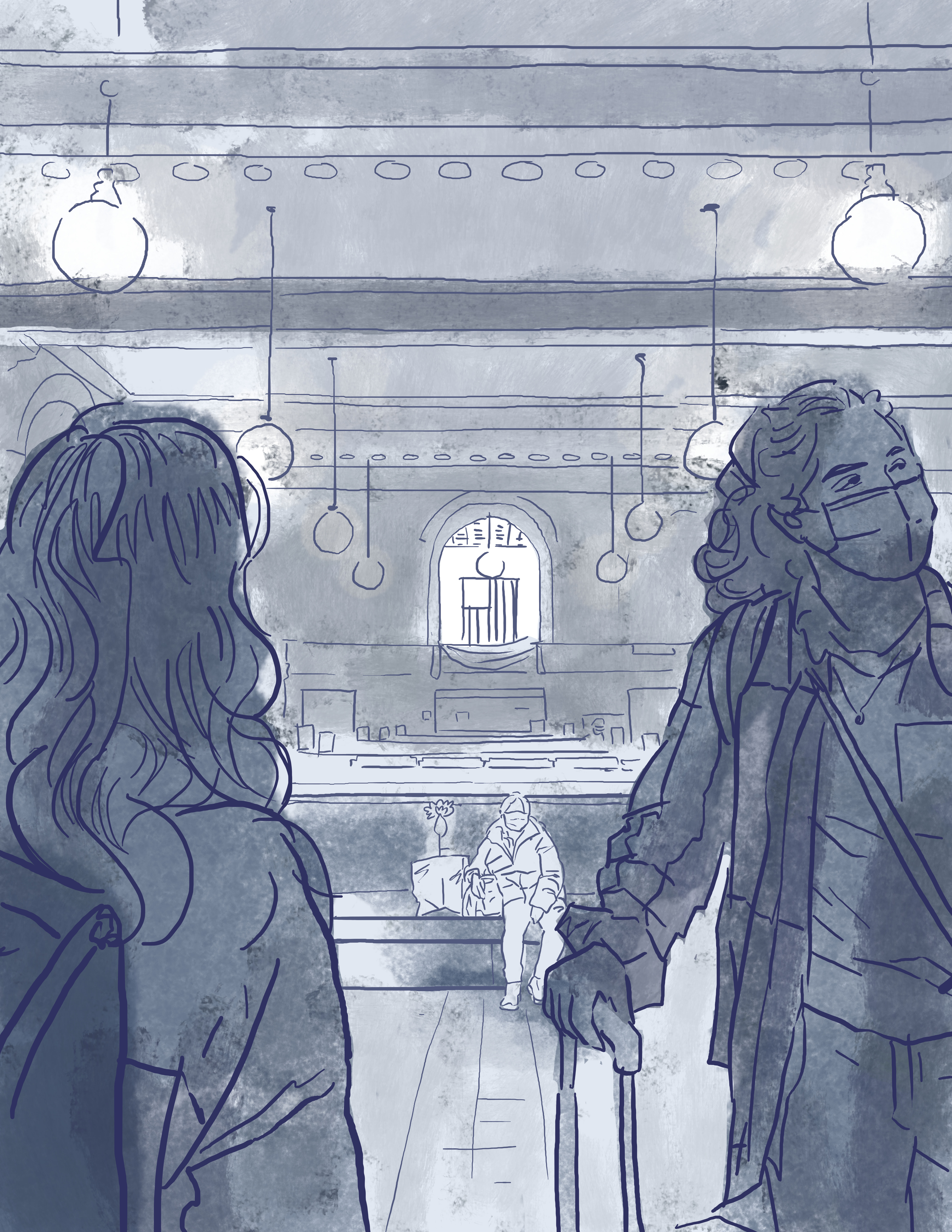
Dora Guo
I got here thinking it was a mistake. On the eve of my first year, I took a red-eye flight from Sea-Tac to JFK. I had one backpack and zero plans. I hadn’t even thought about how I was going to get to New Haven from the airport. To the amusement of some (my friends) and the exasperation of others (my parents) I didn’t prepare anything. I still don’t. I just follow the signs.
The signs (Google Maps) said to take the AirTrain to Jamaica Station, the Long Island Rail Road to Penn Station, and then the Northeast Regional to Union Station. Everything was going just fine until I got to the Amtrak ticket counter at Penn Station. Why did they want to charge me so much money? The train ticket from New York to New Haven was supposed to be seventeen dollars, not seventy. This was a mistake. It was only 8AM. I was sad and sweaty, but I was also lucky. The booking clerk noticed my flushed face and panicked eyes and told me that I was probably looking for something called the Metro North. I’d have to go to a different station, Grand Central, for that.
So, I did what I had to do. I walked to Grand Central, then took the train from Grand Central to New Haven. Outside Union Station, I saw a couple teenagers with suitcases getting into an Uber. I saw an empty seat and asked them if I could catch a ride. I offered to split the cost, but they just replied, “No worries, we’re all going to the same place.”
We’re all going to the same place. If this statement was ever true, it’s certainly not true anymore, and hasn’t been for over a year. Wherever you’re moving after graduation, you won’t be in the same place as your friends, studying Kierkegaard and Sartre in the classroom only to come back to the good stuff (Frank Ocean’s “Blonde” and SZA’s “Ctrl”) for the philosophizing done in open-doored dorm rooms late at night. You won’t be in the same two-mile radius, orchestrating walks down Hillhouse, trips to the Yale Farm and feasts of Claire’s cake in your college’s basement.
And, you know, that’s probably a good thing. This release from proximity. There are a lot more people to meet in your twenties and you can only handle those inevitable and awkward encounters on your walk up Science Hill or in the pizza line in the Berkeley dining hall for so long. So yeah, change can be good, but even the smallest dose of it makes me think about all the what-ifs. The should’ve, could’ve, would’ve, but didn’ts. There were a lot of them this year.
If it’s any consolation, we’ve already experienced so much change. And, still, we made it here. To the last sentence of that final paper. To the hug you give your friend after they finish their thesis. To this feeling. It’s different for everyone. For me, it’s this affection I didn’t have when I first got to campus; this feeling, now, that “here” is a place filled with people, who I share time with and who I don’t have to explain everything to because they’re doing it — doing it all — with me. It’s this realization that we needed each other in this place and will probably still need each other in the next, however vulnerable that makes us feel. It’s reassuring and it’s frightening, and it’s just like SZA says: “Need you for the old me, need you for my sanity / Need you to remind me where I come from.”
Asking yourself and each other how you got here — to Yale, to graduation, to whatever feeling it is that you’ve arrived at after all this — is one way of giving care. Getting to this point was hard, if not downright impossible. Sometimes, I still think it’s a mistake (they’re really letting me graduate??) But I’m trying to learn, trying to remember, that it wasn’t. It isn’t. If someone ever tells you, “Regardless of how you got here, you’re here now,” don’t believe them. This statement is at best a myth. At worst, erasure. You’re here now because of how you got here.
And, well, here we are. I look around and I see a lot of people here. I keep looking and I see even more people who aren’t. I’m thinking about them. I wish they could be with us at graduation. I wish they could be with us on this train headed to campus one more time. We’d sit, side-by-side, giddy with relief, flushed with gratitude, sipping on our congratulations. We’d press play on “Ctrl,” lock eyes at the end of the album and really lose it when SZA sings, “Hopin’ my 20 something won’t end / Hopin’ to keep the rest of my friends.” We’d look at each other, feeling older but also newer, if not completely put-together, then at least here, together, waiting to hear that very last and very best announcement.
“This is the train to New Haven. The next stop is New Haven.”







